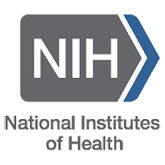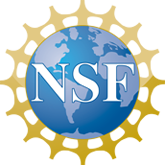News
Updated chromosome-scale CH assembly and CH/CHO-K1 annotations
January 27, 2021
A significantly more continuous version of the Chinese hamster genome, CH PICRH (GCF_003668045.3), along with its 2020 RefSeq annotation is now on CHOgenome.org. Long-range scaffolding of the previous CH genome assembly was performed using high-throughput chromosome conformation capture (Hi-C) and now 97% of the genome is contained in 11 large scaffolds corresponding to the CH chromosomes. In addition, the updated 2020 RefSeq annotation for the CHO-K1 cell line is available. Both can be searched (gene search and BLAST) and viewed on JBrowse. More information on the most recent version of the Chinese hamster genome can be found here.
Updated CH assembly and CH/CHO-K1 annotations
May 1, 2019
We are excited to announce that the significantly improved Chinese hamster genome, CH PICR (GCF_00366804.1), along with its 2018 RefSeq annotation is now online. In addition, an updated RefSeq annotation for the CHO-K1 cell line is now available. Both can be searched (gene search and BLAST) and viewed on JBrowse. More information on the updated Chinese hamster genome can be found here.
New mRNA Expression Browser (Beta)
June 7, 2017
The browser (beta version) for the visualization of mRNA expression from CHO-K1 cells is now online. The data is from several published DNA-microarray or RNA-Seq experiments. The tutorial on how to use this browser can be found here.
CHOStart
CHOStart: A crowdfunding request for PacBio hamster sequencing
May 2017 Update
The CHOStart project has generated 170 SMRT cells and 95 GB of genomic sequence data so far. Thanks to your support, we have raised ~40% of the fundraising goal. Additional updates can be found at the bottom of the page.
 |
 |
 |
||
 |
 |
 |
 |
 |
 |
Project Overview
The community plans to collect third generation sequencing data (PacBio) on the hamster to help create a new reference assembly. We expect the effort to cost $100,000 and we request support from the community. The suggested support level is $5,000 per academic organization and $10,000 per company, although amounts larger and smaller are welcome. Contributions made by credit card will be charged in USD. Donations are tax deductible in the United States. The University of Delaware's non-profit tax ID # is 51-6000297. Our timeline is to collect all data by Q2 2015 and to manually correct automated annotations through 2015/2016. Current commitments total $40,000 and any funds collected over the $100,000 target will support the annotation effort.
If you are interested in making a donation to the CHO Community PacBio Project, please choose from the following options. Prior to any of the options, if your organization would like an initial invoice or documentation requesting support, please simply email Allie Sethman at asethman@udel.edu.
Option #1
Clicking the link below will direct you to the University of Delaware's Giving page. In order for your contribution to be directed appropriately, please enter DBI CHO Genome in the box marked "Other (Please specify)" listed at the bottom of Gift Designations.
https://primus.nss.udel.edu/makeagift/main.action
Option #2
To make a donation to the CHO Community PacBio Project by credit card, please provide the following information by phone at 302-831-3431.
Name of Company/Organization:
Amount of donation (USD):
Credit Card #:
Exp date:
Card Holder's Name:
Billing Address:
City:
State:
Zip Code:
Option #3
To pay by check, make your donation out to the University of Delaware specifying the DBI CHO Project in the memo line and send your donation to:
Delaware Biotechnology Institute
15 Innovation Way, Suite 204
Newark, DE 19711
December 2014 Update
Our goal is to complete the Chinese Hamster genome to merge the existing sequencing projects and provide additional coverage that increases our understanding of the hamster in relation to biotechnology applications. Pacific Biosciences shared resource centers at the Delaware Biotechnology Institute and Johns Hopkins are concurrently generating sequence data from the same library preparations. To date, high quality genomic DNA libraries have been prepared from Chinese Hamster liver tissue. The libraries have been prepared at the Delaware Biotechnology Institute, and divided between the sites. Test runs were completed at each site to identify the optimal DNA loading concentration. A total of 84 SMRT cells have been used at both sites to generate approximately 42GB (approximately 15x coverage) of genomic sequence data thus far. Additional library preparation and data generation is ongoing. Thanks to your support, this project has raised approximately 30% of its fundraising goal. We will continue to post updates to the project as they occur (Last update: late November, 2014).